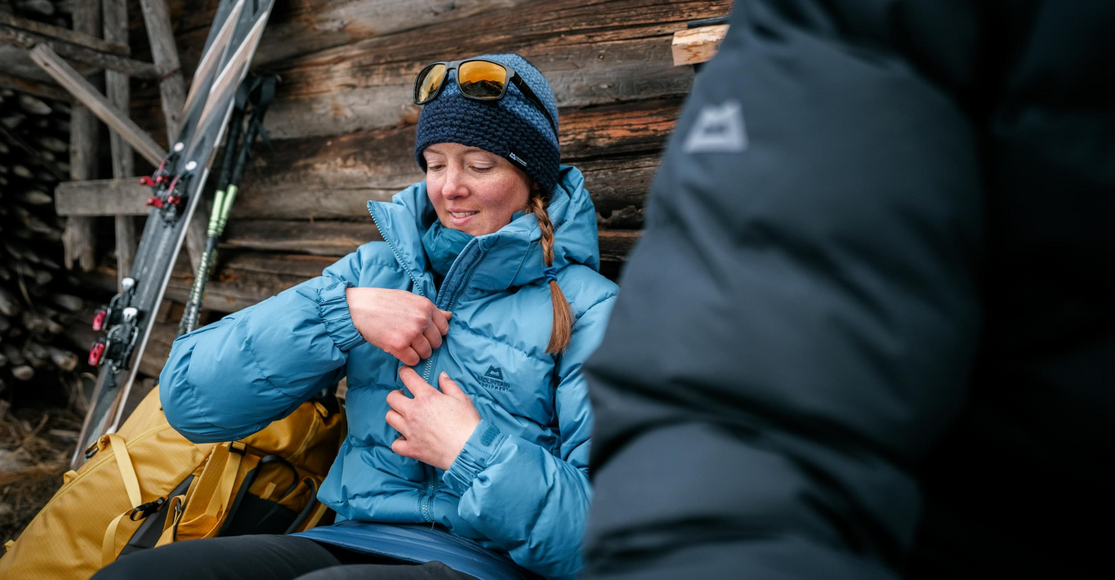The outsider’s perspective: Inside the RDS working group

The Responsible Down Standard (RDS) is run by Textile Exchange, a global non-profit organisation who exist to drive positive impact on climate change and nature and who in turn manage standards related to traceability and responsibility. For those standards to remain relevant, they need to be current and this are periodically reviewed and when this happens a working group comes together to discuss possible amendments or additions.
Despite not being an official brand partner for RDS, our experience in implementing and researching down auditing standards meant that we have been part of the RDS working group that met to review the standard. The goal being to implement the third revision to the RDS standard since it was introduced.
As such we were outsiders, but we decided to actively participate because as a brand, we want to be a positive influence in the industry beyond our relatively small brand-specific reach. We also had a unique perspective, having worked with supply chains that had been audited to both the framework we developed for DOWN CODEX as well as for previous versions of the RDS standard.
The working group members were not just idealistic outdoor brands: there were academics, farming groups, down suppliers, down wholesalers, bedding manufacturers as well as representatives from animal rights groups and charities. With such a broad range of interests, agenda’s and opinions Textile Exchange had their work cut out keeping the meetings focussed and on the straight and narrow; but engagement with all parts of the industry is essential if consensus is to be reached and if steps towards real change are to be taken.
The meetings were usually online. It seems bizarre now, but this was pre-pandemic and so large group video calls were definitely not the norm. The meetings were held according to ‘Chatham House Rules’, meaning that anyone could discuss the outcomes or particulars of the meetings, but couldn’t disclose who said what. This meant for quite open discussions and no doubt saved a lot of time and internal politics.
Some calls would be really gratifying as various disparate parties would pull together to try to make the RDS standard more rigorous and demanding of greater animal welfare. Sometimes, those with more progressive views would outnumber some of the more conservative members and we’d really make some progress. But somtimes meetings could be really challenging. During one particular meeting I recall, the issue of bill trimming and whether it should be permitted or not was discussed. Previously it had not been permitted within the RDS standard.
For anyone not familiar with this topic, bill trimming is a practice carried out primarily with the aim of preventing birds causing pecking injuries to one another. But it is potentially extremely painful and arguably unnecessary, if other aspects of a birds welfare are properly considered. As such it is a great example of a subject that is both very contentious and often very divisive and one which for us as a brand has caused us, on more than one occasion, to dismiss a prospective down supply chain outright - we have never permitted the practice within our DOWN CODEX framework. But there are others within the down industry who argue it is a practice which prevents other injury to birds and should be allowed.
And so in this one particular meeting, there was a strong group lobbying for the authorisation of infrared bill trimming under RDS with an equally vocal group arguing that it should not. The discussion rolled along and it didn’t seem to be heading in the direction that we wanted. At that point we and some other working group members put our point of view forward – that permitting bill trimming under any revision of the standard would be a huge step backwards and could ultimately lead to certain brands going it alone, entirely the opposite of what RDS had sought to address. But as arguments were made, slowly the tide turned, and the discussion began to move the way we and others wanted. When the revised standard was finally released, the practice of bill trimming remained prohibited.
Developing any standard is always a difficult balance between making it rigorous and something which incentivises best practice versus the practical challenge of not having a standard that is so stringent that it becomes unworkable or is impossible to implement. That does sometimes involve some difficult decisions and of course, compromise.
The working group that contributed to the RDS 3.0 was a large and sometimes disparate bunch, and while we were unusual as a non-RDS brand on RDS calls, everyone contributed to a standard that improved hugely over its predecessor. We may not think RDS 3.0 is perfect, but it has raised the benchmark for its consideration of animal welfare in supply chains. Will we remain as outsiders? The latest revisions have certainly changed our views on the standard and so only time will tell!
There remain many challenges within the down sourcing industry to overcome and opportunities to be grasped. These topics will no doubt be discussed in future working group conversations, which from an outside perspective or not, we very much hope to be part of.
 USA
USA United Kingdom
United Kingdom Germany
Germany